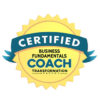Sole proprietorships, partnerships, S corporations, and LLCs are all subject to pass-through taxation. These types of companies are known as pass-through entities, which means that these are entities are not paying taxes as a corporation, instead, their profits will pass through to its members to be reported on their personal tax returns. All profits are only taxed once, at each member’s individual income tax rate.
The IRS does not consider these types of business entities to be separate from their owners. Any profit the business brings in is automatically considered personal profits of its owner(s) or members.
An LLC taxed in this way cannot lower its tax burden by reinvesting profits back into the business, the way a C Corporation can. Partnerships, S Corps and LLCs are also responsible for paying 15.3% of their profits in employment tax, unless you have an LLC or a partnership taxed as a corporation, which can be done with the help of an accountant or CPA, by filing a form with the IRS, in which you can choose to have your LLC taxed like a corporation rather than a pass-through entity.
If you opt for an LLC and would like to take advantage of retained earnings (net profit after dividends are paid) while still enjoying pass-through taxation, it may benefit you to elect being taxed as an S corp. S corp owners who work for the business have their profits distributed as salaries rather than distributions. So after you pay yourself a salary, the remainder of profits can be retained in the business or divided among owners as non-dividend distributions.
In general, the owner of a pass-through entity is required to pay both personal income tax and self-employment tax on their regular wages received from the business, but opting to be taxed as an S corp, provides the difference that retained earnings are never subject to self-employment tax, even when they are distributed to owners. This method of having the benefits of a pass-through taxation while also benefiting from the S corp option to have profits distributed as salaries rather than distribution, is used by many coaching businesses that are formed as LLCs yet still act as self-employed. The key is in order to avoid raising eyebrows at the IRS, having a pass-through entity and being taxed as an S corp, you must limit the amount of profit you retain in the business. Be sure to pay yourself, the owner, a “reasonable salary” based on your position and industry. Most importantly, talk to your accountant about all this before you make any choices.
How Are Losses Handled with Pass-Through Taxation?
Just like with profits, LLCs taxed as pass-through entities report their losses on their personal tax returns. While the specifics can vary significantly depending on your business, your reported losses will reduce your overall tax liability.
The pass-through entities offer their owners two main benefits:
- The structure is simple and allows owners to combine their personal and business income for tax purposes. This can be particularly helpful for smaller businesses looking to streamline their operations.
- All business profits are only taxed once, at the owners’ personal tax rate. This differs from corporate profits, which must deal with double taxation, first at the corporate tax rate and later at the shareholders’ personal income tax rate when corporate profits are distributed as dividends.
Pass-through taxation features offer an attractive option, but it does come with some disadvantages. One major downside for pass-through entities is the requirement that they pay employment tax on all profits. This 15.3% tax covers both the employee and employer portion of Social Security and Medicare tax. S corps have a taxation option that can reduce the employment tax burden by retaining a portion of the profits however, all wage earnings are still subject to both income tax and employment tax.
In the United States, when you hire an accountant or CPA, they will tell you about the new 20% pass through tax deduction created as part of the Tax Cuts and Jobs Act of 2017, provides an additional advantage for pass through entities. The Act says that pass through entity owners can deduct up to 20% of the company’s qualified business income on their personal tax returns. This is a lot to think about, so be sure to ask your accountant what the best tax option is for you and your business.
Author: Sanda Kruger
Sanda is an entrepreneur, real estate investor, health coach and professional dancer. Sanda is an entrepreneur with more than 20-year experience in business development and project management in the fields of life, health and fitness coaching. She is also a real estate investor and a banker, who learned outstanding adapted business strategies, sales and marketing techniques, communication, and goal setting skills, hands-on, through life and work experiences. She is a certified fitness professional and is the creator of two original fitness programs, called BellyCore® Fitness and AquaCor®.
If you want to dive deeper into the EVERYTHING you need to know about starting a life coaching business, check out the following 3 self-paced online courses!

STARTUP 101
Take this free article series you are reading now further and learn more about taxes, accounting, creating a business plan, startup costs, funding, and more!
Save 50% with coupon code: STARTUPBLOG

BUSINESS FUNDAMENTALS
LIFE COACH CERTIFICATION
Want to guide other entrepreneurs through this startup process? Get CERTIFIED and trained to use all of the content in the Startup 101 course above PLUS a ton more content on goal setting, business mindset, marketing and advertising, too!
Save 50% with coupon code: STARTUPBLOG

LIFE COACHING
BUSINESS MASTERCLASS
Get your COACHING OFFER ready to launch! This course will guide you through choosing a niche, creating a signature coaching package, and the marketing strategies that have been proven to be most effective for life coaches
(joint ventures, free sessions, and speaking).
(Learn more first with this free video series)
Save 50% with coupon code: STARTUPBLOG







